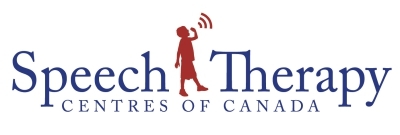Exams are never easy and preparing for them can sometimes be a nightmare for students, especially those with learning disabilities or acquired brain injuries. Students with these conditions are at a severe disadvantage in the classroom. Speech-language pathologists from Speech Therapy Centres of Canada can work side-by-side with you and your child to help with these conditions. Here are some study tips for teenagers with learning disabilities or acquired brain injuries.
Plan in advance
Nothing is more important than creating a plan in advance. If you find a course more difficult, then allocate more time. If something is easy, then put it on the back burner. Stick your plan in a prominent place such as your desk, fridge, or near your bed and make sure to look at it every day. This will help ease the stress of worrying about the unknown and help you to effectively plan the coming days to give yourself the best chance to succeed.
Get away from distractions
Many people with learning disabilities or acquired brain injuries have trouble concentrating, especially in crowded places. Set up a space off to the side somewhere to get away from distractions – whether it’s your bedroom or a quiet library.
Be prepared
Bring everything you think that you will need and more. This will cut down on distractions and time wasted looking for things. Remember writing implements, highlighters, notebooks, books and anything else you might need.
Use helpful reading strategies
One major problem for students is that they read a text only to find out at the end that they zoned out or didn’t take in any information. Not being able to absorb and process information is frustrating. Here are some active reading strategies that can help:
- Predict – predict what will be covered in the chapter. Make a game out of it. Try to find the information that you thought would be in there. This will help you zone in on key concepts and find the right info.
- Highlight – use your highlighter to underline key information. This gives you a reason to zone in. Write notes in the margins of the text or in a separate notebook. Not only does writing it down help you retain key information, it will help you focus more when reading. Plus it will help you go back and review.
- Reread – there is nothing wrong with skimming a text if it’s done the right way. Skimming to get the gist of the information is a great idea, but make sure that you go back. Go through the first time, highlight the main ideas, then go back and reread the whole chapter. This will help with retention of the material.
- Recite – many people find it helpful to recite the information aloud after reading a few pages. This will help you make sure that you’ve understood everything. Recite it to a partner if you have one, and focus on the key elements. If you find that you don’t understand everything, go back and do it again.
- Review – the end of each chapter will come with a lot of key terms and ideas, so it is imperative that you review what you’ve read. Try to quiz yourself if there isn’t a quiz at the end, and summarize what you’ve read in notes.
A speech-language pathologist can help those with learning disabilities or acquired brain injuries learn new study habits, focus, and achieve their fullest potential in school. We can determine what your strengths and weakness are and create an effective study plan tailor-made to your abilities. We know that exams can be daunting, but with these 10 study tips for teens with learning disabilities and acquired brain injuries plus some help from Speech Therapy Centres of Canada, you can be well one your way to getting the most out of school.

